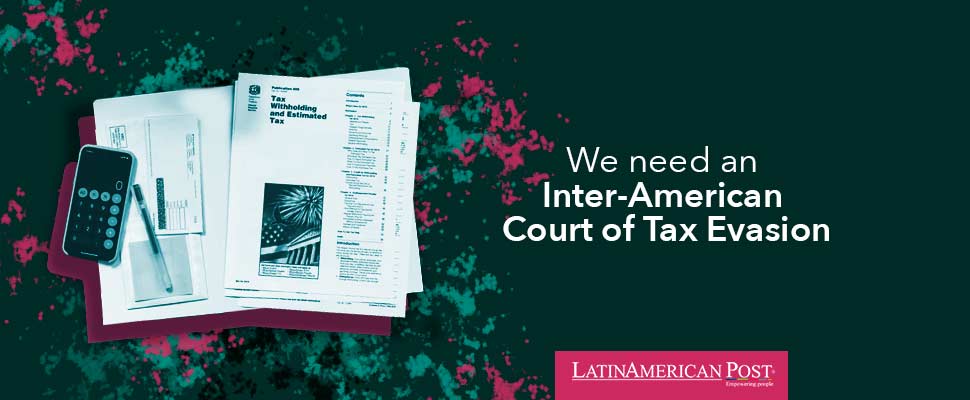Latin America is one of the regions with the most off-shore accounts evidenced by Pandora Papers. Instead of coming out of the COVID-19 crisis with increased taxes, let's take action on tax evasion.

The Pandora Papers, the largest leak of information from off-shore accounts of famous and powerful people, reminded us of the real problem of inequality in Latin America and in the world. Photo: Pixabay
LatinAmerican Post | Santiago Gómez Hernández
Listen to this article
Leer en español: Opinión: Los Pandora Papers evidencian la desigualdad en Latam
The Pandora Papers, the largest leak of information from off-shore accounts of famous and powerful people, reminded us of the real problem of inequality in Latin America and in the world. Although it is true that bank accounts in tax havens are not, per se, illegal, they are a tool used to commit various types of crimes. This is why each country in the region, if not all of them together, must efficiently and jointly investigate and control off-shore accounts. Thus, any tax haven that does not allow an open book with tax authorities could be sanctioned, not by one country, but by the entire set of Latin nations. Something similar to what happens in the European Union.
It is not in vain that Latin America is one of the regions with the largest number of off-shore accounts that appear in Pandora Papers. Showbiz people like Shakira (who had tax evasion scandals in Spain), or active or inactive politicians, like the current presidents of the Dominican Republic, Ecuador, and Chile.
It is not for nothing that within the 10 nationalities that appear the most in Pandora Papers, there are 4 Latin American countries. Argentina in 3 places, Brazil 5, Venezuela 6, and Guatemala 10. However, when we see 2 of these countries, there is a common phenomenon: hyperinflation and devaluation. Well, precisely, many people in Venezuela and Argentina use accounts abroad to be able to safeguard their savings in a country in which the currency is increasingly devalued and that imposes restrictions on the purchase of dollars.
???? | Personas que aparecen en los papeles de Pandora según país. pic.twitter.com/Lkoc0PBuMo
— Alerta News 24 (@AlertaNews24) October 3, 2021
However, there are suspicious behaviors. According to the Statista company, within the 10 countries with the highest number of politicians in the Pandora Papers, 3 Latin nations also appear in the top 10. Honduras and Colombia tie in third place with the United Arab Emirates and in seventh, Brazil tied with the United Kingdom and Angola. Public servants must be completely honest and demonstrate that neither in the present nor in the past have they committed tax crimes since it is they who will later promote measures to pursue, benefit or relax laws against offshore accounts.
And it is that they are not only politicians but also family and friends. People very close to the highest levels of power in the region and who are having a beneficial relationship. Not for nothing, several of the countries named in the Pandora Papers are the same countries that are located in the last positions of perception of corruption. Venezuela occupying position 176 out of 179 countries; Honduras, 157; Guatemala 149; the Dominican Republic in 137; Brazil 94 and Colombia 92, all among the worst-rated in Latin America and competing mainly with African and Middle Eastern countries. There is a coincidence, which could indicate some causality. Or at least some small influence.
However, in times of post-pandemic, when there are several countries trying to get out of the economic crisis, they have been faced with the need to increase collection. Unfortunately, governments have decided to increase taxes, when it has been known that pursuing tax evasion may be enough.
Tax evasion is real. The same ECLAC calculates in 2018, the region lost 325,000 million dollars (6.1% of GDP) due to non-payment of taxes. This shows a huge fiscal gap that grows and grows every year and that this could be an important injection of capital to get countries out of the economic crisis.
An alternative is to not just pursue these accounts separately. Since we have talked so much about integration in the region, we should promote an organization that persecutes and punishes tax evaders and that together sanctions banks, entities, and states that facilitate this concealment of capital. An entity that has the powers of the Inter-American Court of Human Rights and is binding.
Also read: Pandora Papers in Colombia: The Impact They Will Have On The 2022 Elections
So if the answer is so simple, why haven't we been able to move forward in the prosecution of tax evasion? What happens is that to carry out these measures, only one thing is needed: political will. For this, the ideal is to be able to create an international tool that allows us to track and identify off-shore accounts and to be able to determine and punish those that serve money laundering, tax evasion, and any illicit purpose. The problem is that as the Pandora Papers evidenced, several of the Latino leaders or influential people in the area have accounts in tax havens and maybe using loopholes to avoid paying all their responsibilities. And it is they themselves who create the laws that will later judge tax evasion.
But with a president, hopefully, one with regional leadership (in times of little leadership). In due course, a Pepe Mojica could take up the flags and put this idea to the discussion in the international community. Seek that Mercosur, Pacific Alliance, OAS, Andean Community or any other integration organization experiment with their own initiatives and be able to expand them more and more. It will be a long road and we would have to give up autonomy, but the faster we start, the faster we can end off-shore accounts for illicit purposes.




